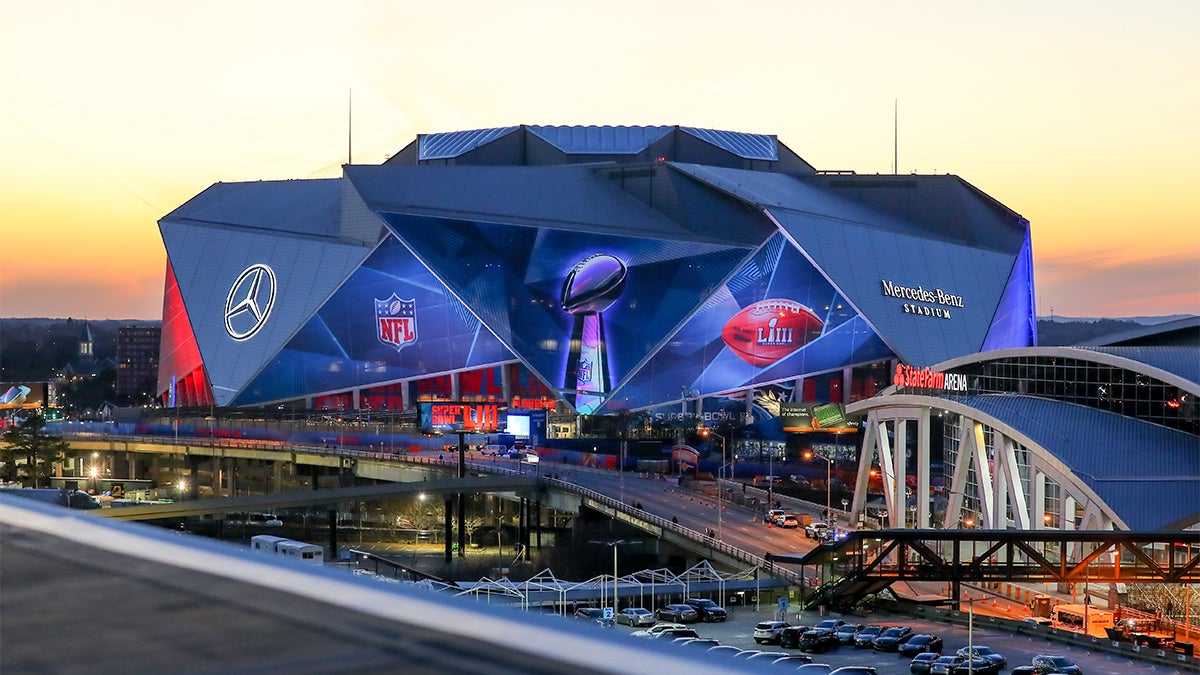So you want to host a Super Bowl? It'll cost ya

Super Bowl LIII will take place in Atlanta on Feb. 3. Have you wondered how cities are selected or what the city gives up to host the game?

In 2014, a copy of the NFL’s confidential demands for the 2018 game in Minnesota was leaked. The 153-page document contains 16 sections — with subsections — of minimum qualifications and specifications the city must meet to become eligible.
Some of the requirements:
- The NFL will control 100 percent of the ticket revenues, which includes all suites. The host committee is required to seek tax exemptions for these and other revenues. If the exemptions are not granted, the host committee must reimburse the NFL for taxes on tickets and events. For this years game, the lowest priced ticket is currently going for $2,391 and the highest priced is sitting at $12,470. Mercedes-Benz Stadium holds a total of 71,000 seats, just calculating that with the lowest ticket price, the NFL is earning just shy of $170 million if each ticket was sold at the minimum price value. It is likely the NFL is earning close to (and perhaps more than) half a billion dollars off ticket revenue alone.
- The field must be removed after the game at no cost to the NFL, unless it is to be removed and sold as a licensed product.
- Vending product rights are held by the league. For example, if the drink fountains are pouring a product that is not an NFL sponsor (even if it is a stadium sponsor) the taps will be changed or covered to match the NFL sponsorship, and the cups will be changed to clear, non branded cups. Mercedes-Benz Stadium, for instance, is a Coca-Cola sponsored facility. However, the NFL has a sponsorship with Pepsi. So at the Super Bowl this year, Pepsi will be served instead of Coca-Cola.
- The league requires 15,000 parking spaces, exclusive and cost-free, along with other requirements for staff, event and other parking. On top of the cost-free parking, the NFL is entitled to all parking revenue at the stadium. Parking and transportation at Super Bowl LIII
- The NFL has the option to remove or cover all ATM machines in favor of ones that accept NFL preferred credit/debit cards.
- When it comes to hotels during the Super Bowl period, hotels in use must agree to televise NFL Network for a year prior to the event, at no charge to the NFL or the teams.
- 800 pounds of ice must be provided per day at practice facilities.
- Three top quality golf courses and two top bowling venues must be provided, again at no cost to the NFL.
In the past, cities have gone to extreme and sometimes wacky lengths when presenting their bids for Super Bowl hosting rights. Teams have offered free golf with legend Arnold Palmer, rotating stages and virtual tours, money and even the promise of yacht use.
In 2018, the league announced an overhaul of its selection process that took effect with the awarding of the 2023 game to Arizona. Under the new method, the city is selected by the league and then given the list of specifications. It can then decide whether to host or not, giving the league even more control over the process and venues.
If the selected city declines the offer, then the old style of bidding will occur. If the chosen city accepts, it will need to find its top golf courses and bowling alleys for the NFL and must accommodate all 65 times the “no cost to the NFL” statement appears in the document.
Economists argue whether the overall impact of hosting the Super Bowl and the money invested into stadium building and renovations is positive or negative for the host city and region. In order to host the Super Bowl in 2015, The city of Glendale, Arizona estimated a loss between $579,000 and $1.25 million to pay for public safety and transportation. In 2016, Minneapolis, which hosted the game in 2018, voted to spend almost $500,000 to build a police center near the new U.S Bank Stadium because the Super Bowl was being hosted by the city.
Cities continue to be willing to host the Super Bowl even as costs continue to rise.
Dustin Paré is a senior broadcast journalism student at Arizona State University

